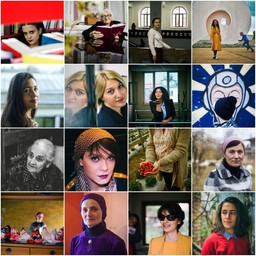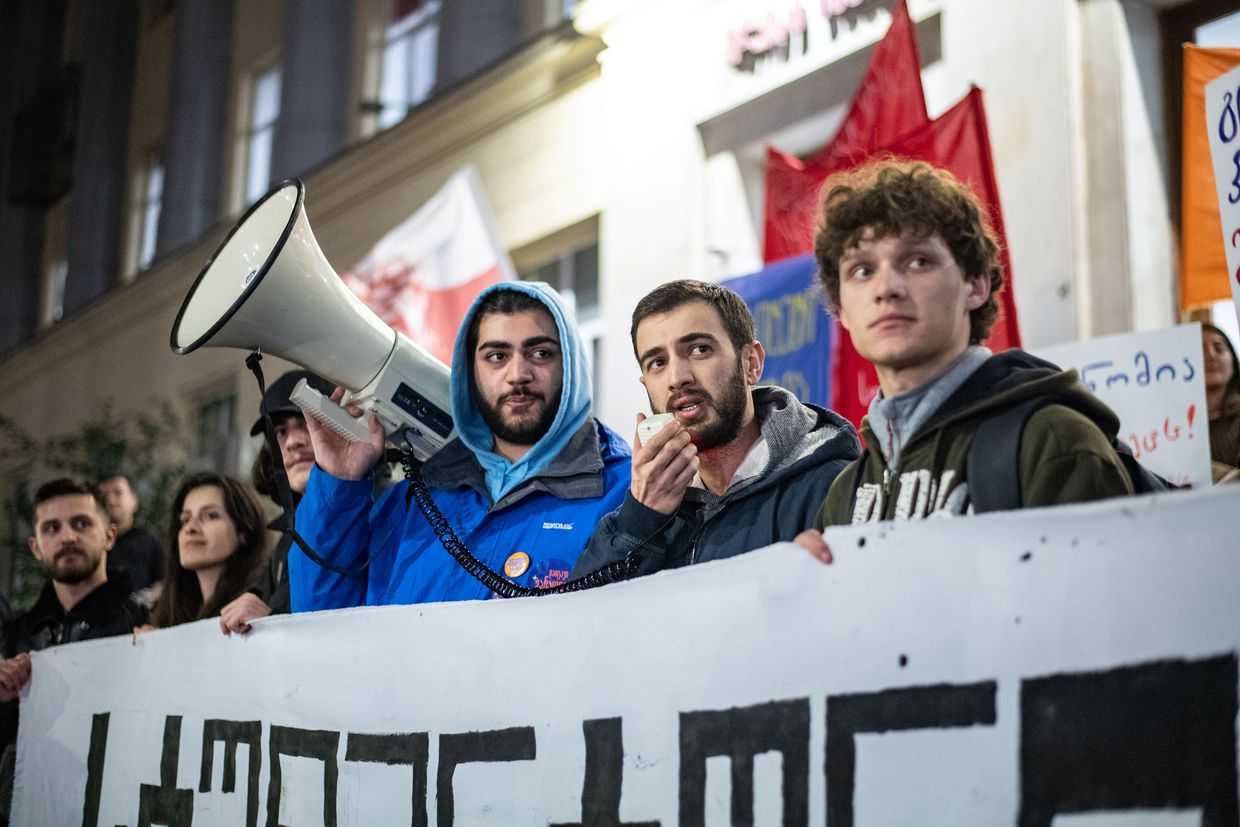
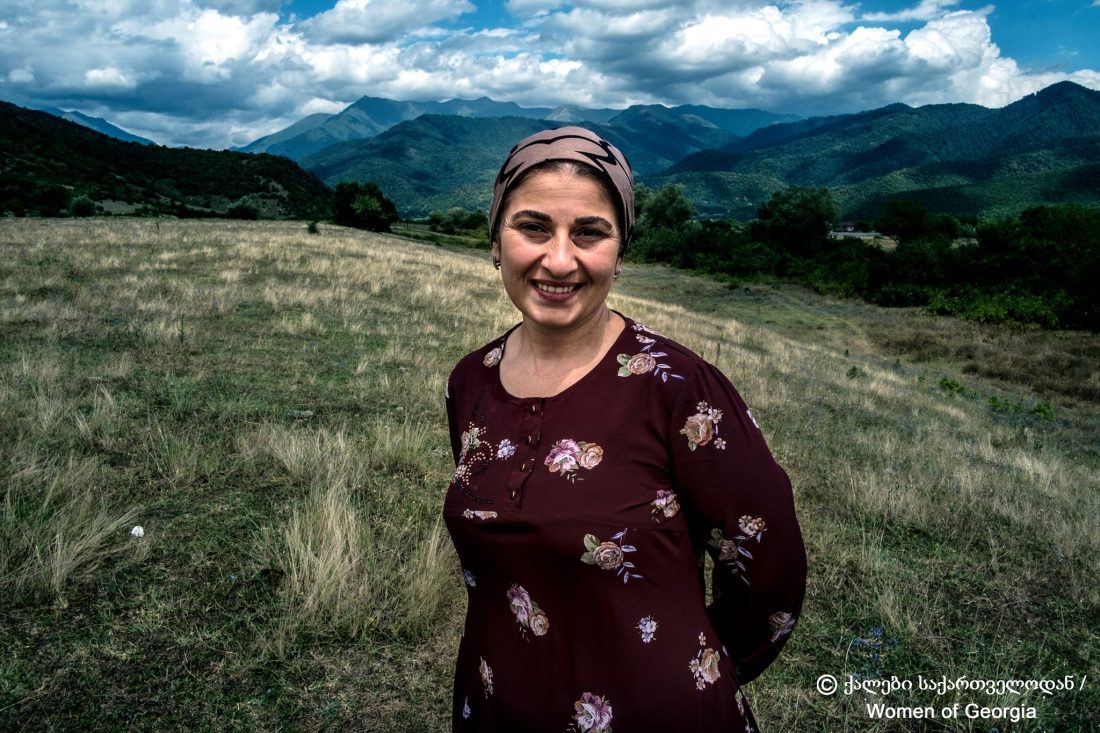
Mediko Machalikashvili, 46, from Duisi, Pankisi Valley, speaks of being married too young, losing a husband and the hardships of being a widow in a conservative society.
‘I was never lucky enough to become a student. My grandmother was forced into marriage when she was 15, at 18 she was already widowed, left to raise two children alone. She devoted her life to her children, so they could never go against her will. Her word was the law.’
‘Grandma was adamantly against education. She was afraid that education would set one free in a bad way. Therefore, her daughters did not receive an education either. Both of her girls were forced to marry at a young age into families from nearby streets, to keep them close to her.’
‘I was five when grandma was left alone and moved me to live with her and raise me. When I finished school, they didn’t let me get a higher education. I was still in school when they forced me to get engaged. Both sides agreed and I married at 17. I didn’t know the guy at all. At the time, arranged marriage was the norm and we couldn’t even imagine going against our elders’ wishes.’
‘Nowadays young people are more courageous and open-minded, able to resist influence and manage to live by their principles. If I was anything like them in my youth, perhaps I too would take a completely different route. I could’ve achieved something and gotten a better life. I think education is necessary to live with dignity and live by your principles. I wanted to become a pharmacist, but I wasn’t able to enrol. My daughter was, so perhaps, in a way, my dreams became true for her. She was not interested in it, but she did that for me.’
‘We left everything that what we had there’
‘I have never had a happy life. Imagine, I got married and everything turned upside down right away. I already had my first child in 1991, when we moved to Grozny. Everything was getting better, we had our second child, and we even planned to buy a house there when suddenly the war started.’
‘How can I forget spending 10 days in a bunker with a newborn baby and a 2-year-old child? I remember the bombs falling from the sky like raindrops. My husband stayed there and I had to leave Grozny alone with two little children.’
‘We spent a whole week on bypass roads, carrying a wounded person with us, our bus breaking down from time to time. It was such a terrible time, I never want to remember, but I can’t forget it.’
‘We left everything that we had there and had only the clothes on our backs. The situation in Georgia was worse than how we left it. I remember we didn’t have flour, so we cooked Mchadi [cornbread] all the time and I hated the very smell of it. I lost all my hopes and dreams during that time.’
‘I went through such a difficult life that I already feel old. I lost my husband in 2004. I don’t even want to remember that, but he was slain in one of the special ops. I was 31 and alone with three young children on my hands.’
‘Life is tough for a young widow. I always felt people staring at me differently and it constantly made me tense, making sure nobody looked at or talked to me. When I went outside, I would always look down, not going to any kind of parties or having fun. Being invisible has become a part of me and stayed with me. Therefore, I always prefer being in the dark to speaking publicly.’
‘Life before and after experiencing work is as different as night and day’
‘I was leading a private life… I wasn’t working nor did I have an income, I was only getting a widow’s pension of ₾14 or ₾15 ($4.70–$5.10). Therefore, in addition to taking care of my children, I also had to grow vegetables and take care of poultry and cattle.’
‘We had to watch the pennies to make ends meet. One day, a friend of our family told me about a vacancy in her workplace, suggesting I get out of the house and socialise. It was an NGO named the Regional Development Fund of Kakheti. They needed a cafe waitress. I agreed, but I had never worked before and I was nervous — like a student worrying she’ll fail the exam.’
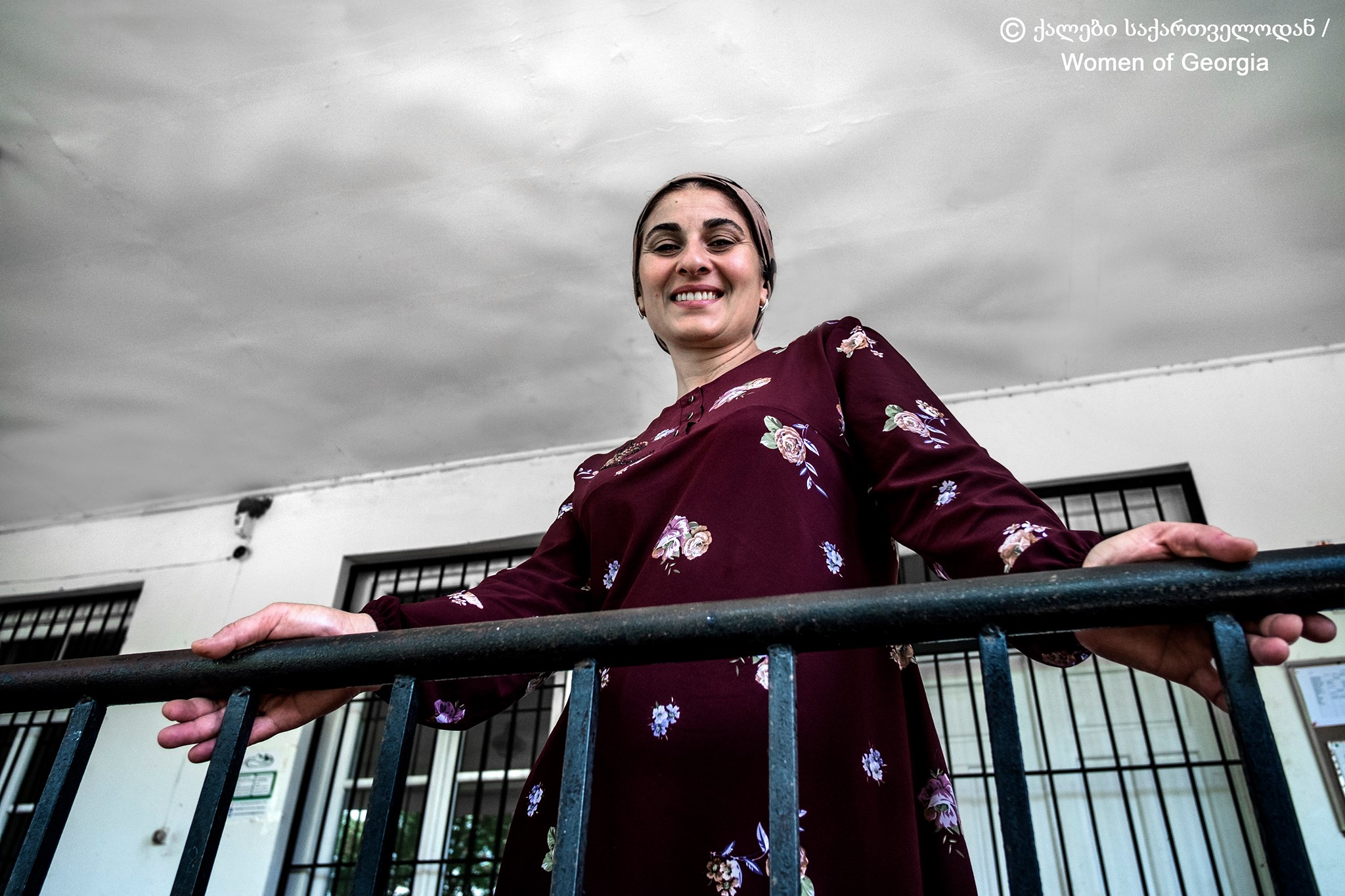
‘I’ll never forget my first day at work. I’m very grateful to all the employees. The director of the organisation, Iza Bekauri, told me they were a family and asked me if I wanted to become a part of that family. And here I am, part of it for nine or ten years now.’
‘Life before and after experiencing work is as different as night and day. I’d compare the night to a person who’s sacrificing her life for her family. Of course, you should do everything for your children, but without losing your own life. For the first time when I went out, I thought I couldn’t manage work and domestic chores at the same time. It turned out that I was perfectly able to do both and I was happier than before.’
‘My life had changed, I made a lot of friends and I realised that my life could be better. I swear, when I was spending all my time home, I never felt I was alive. I was home all day working like a mule. In the evenings, I was contemplating what I had done for the day, it felt the same every day. Then, when I was mostly out of the house, I felt more cheerful and paid more attention to my children.’
‘I was surprised that everybody was happy about my decision’
‘Once, I received a call from Iza — “Mediko, there’s a project beginning to air on Rustavi 2 named ‘My kitchen rules’ and maybe you should take part”, she said. I didn’t understand what she was telling me, she was laughing, I started to laugh as well and I told her yes, I will. I hadn’t seen the programme before and she asked me to watch the first season online.’
‘When I saw it, I was shocked, imagining what I had to do. I called Iza and asked her how I could do this, there is no chance I can go. After that, she changed her tone to one of a request and told me, “I know you’ll manage, you have to go”.’
‘She told me that one of my colleagues, Nato, would come with me as well and that we would definitely do it perfectly. “Don’t you want to introduce our traditional dishes?”, she said. Isa played a critical role and if not for her, I would never have dared to take this step.’
‘I will never forget that day; I was so nervous that I couldn’t get any sleep the night before. I watched the previous seasons and thought I’d be a laughing stock. I was afraid to appear in public. I am still not used to it; I have stage fright and when I have to be interviewed, I always forget what to say.’
‘So Nato was more talkative. The first thing I did was tell my children about the project. They were very surprised, but they told me they’d help and stand by me if I could only find the courage in myself to take that step. Their support was very important to me.’
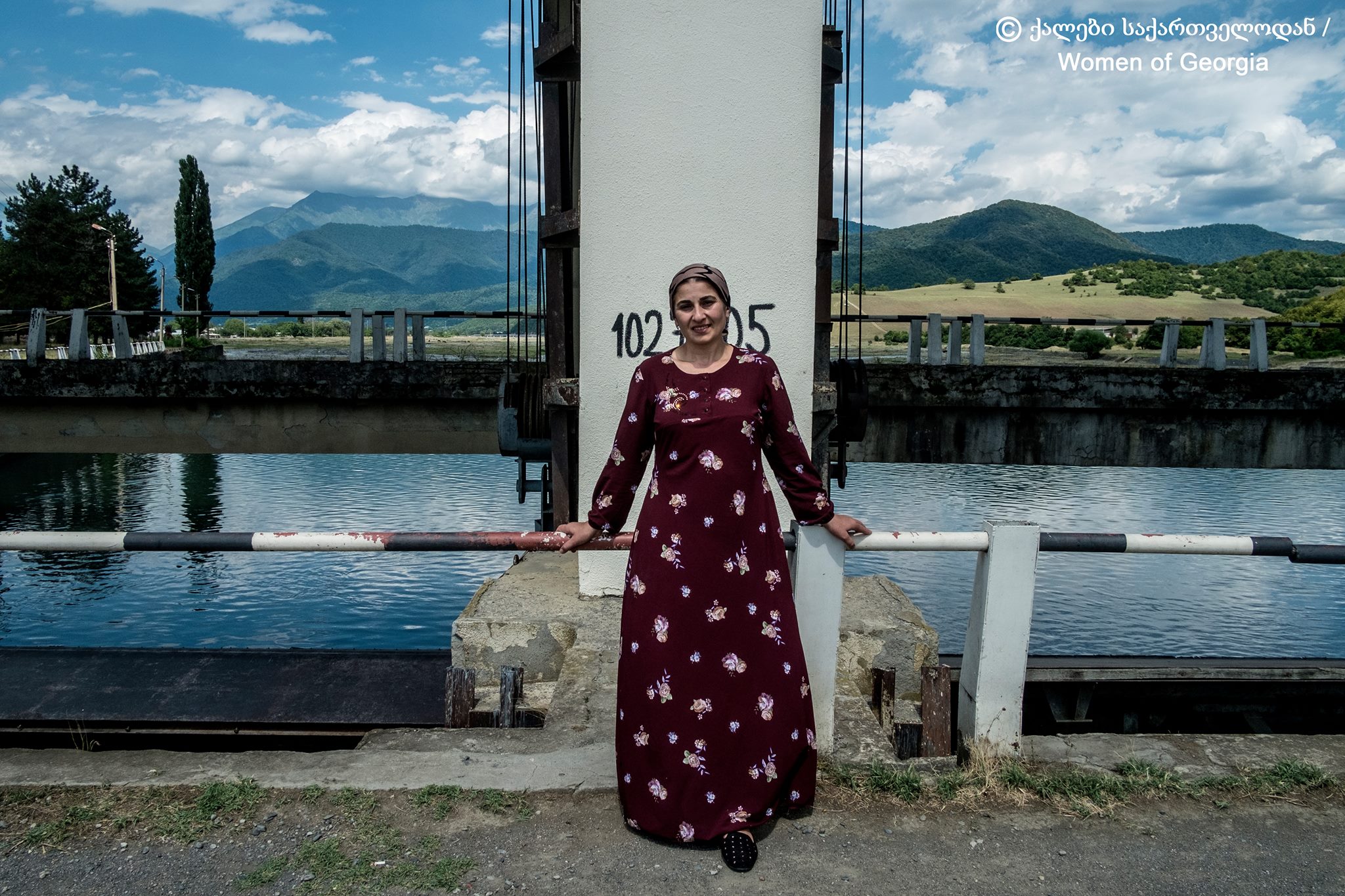
‘Then I started thinking about what other people would say if a widow like me were to take this step?’
‘I was worried about my relatives and neighbours. I was surprised that everybody was happy about my decision, I couldn’t believe it. They were very happy with our participation and even more for our victory [on the show].’
‘Our journey was long and successful. I will never forget it in my entire life, that will be the greatest story of my life. I was always restrained and I always wanted to achieve some kind of success.’
‘When my days were dark, this project lit them up. In addition, I met some unique people — employees of Rustavi 2, their camera crew, the jury, and other participants. I have seen how television works from the inside and how to interact with the audience. Moreover, we traveled the whole country. Oh, this was really incredible and unforgettable for me!’
‘Everybody is happy because our traditional dishes have been met with the highest acclaim. My mother told me she was happy to see me succeed in life. My children are very happy too. I came to the conclusion that there really is nothing that’s impossible.’
This article is a partner post written by Ida Bakhturidze and translated into English by Mariam Karishvili. The original version first appeared on Women of Georgia, on 26 October 2018.


